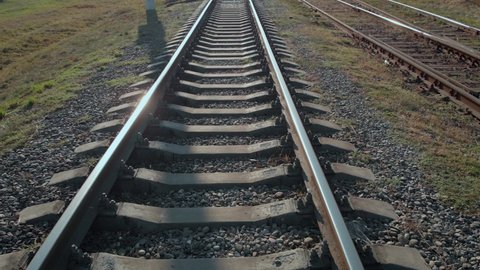
China has committed to funding the joint railway project between Kenya and Uganda, a significant development aimed at boosting regional connectivity and trade. This new commitment will support the construction of the Standard Gauge Railway (SGR) from Kenya’s Naivasha to Uganda’s capital, Kampala, passing through the Malaba border.

The SGR project, initially stalled due to funding issues, has been revived through China's renewed support. This project is crucial for both Kenya and Uganda, as it is expected to enhance the efficiency of transporting goods, reduce logistical costs, and promote economic integration in the East African region.
The railway is set to handle both passenger and freight services, with freight trains operating at speeds of up to 80 kilometers per hour and passenger trains at 120 kilometers per hour.
The agreement signifies a shift from previous attempts to secure European funding for the project. The new financing arrangement was confirmed by Chinese authorities and involves significant investment in infrastructure that will link the Mombasa port in Kenya to the inland regions of Uganda.
The Mombasa-Nairobi phase of the SGR, which cost approximately $3.6 billion, was primarily funded by the China Exim Bank, which covered 90% of the costs, with the Kenyan government funding the remaining 10%.
Uganda has been particularly keen on this development, given the high transport costs and inefficiencies associated with its current reliance on road transport and an outdated narrow gauge railway. The new railway is expected to facilitate quicker and cheaper transportation of key exports like coffee and tobacco, significantly impacting the landlocked country’s economy.
China's involvement in this project is part of its broader strategy of enhancing infrastructure across Africa through the Belt and Road Initiative. This project also underscores China’s role as a major infrastructure financier on the continent, aligning with its goals of fostering deeper economic ties and mutual benefits.
The project had seen delays partly due to Kenya's concerns over accumulating debt and terms of previous loans. However, the renewed deal reflects a strategic move to overcome these financial hurdles and ensure the project's completion.
The Kenya Railways Corporation is expected to collaborate closely with Chinese firms to implement the construction, following Chinese railway design standards. This collaboration includes commitments to transfer skills and ensure compliance with local laws and regulations.
The revived SGR project represents a significant milestone in East Africa’s infrastructural development, promising to enhance regional trade routes and economic growth. The successful completion of this project will not only improve transportation efficiency but also support economic ties between Kenya and Uganda, fostering broader regional integration and development.

















